When you’re undergoing chemotherapy, every pill, every supplement, even that glass of grapefruit juice could change how your treatment works. It’s not just about the cancer drug itself - it’s about what else is in your system. Drug interactions with chemotherapy aren’t rare. They’re common, serious, and often overlooked. In fact, more than half of outpatient cancer patients experience at least one potential interaction, and one in three of those could lead to dangerous side effects or even treatment failure.
Why Chemotherapy Interactions Are Different
Chemotherapy drugs are powerful. They’re designed to kill fast-growing cells - cancer cells. But they don’t always know the difference. That’s why they’re so hard on your body. And when you add another drug, supplement, or even a food into the mix, things get unpredictable. There are three main types of interactions that matter most with chemo:- Pharmacokinetic: This is about how your body absorbs, breaks down, or gets rid of the drugs. Most of these happen in the liver, where enzymes like CYP3A4 and CYP2D6 process medications. If two drugs compete for the same enzyme, one can build up to toxic levels - or get broken down too fast to work.
- Pharmacodynamic: This is when two drugs amplify or cancel each other’s effects. For example, combining two drugs that hurt your kidneys can lead to kidney failure. Or, a painkiller like ibuprofen might increase bleeding risk if you’re also on a blood thinner during chemo.
- Immunological: Newer treatments like immune checkpoint inhibitors (ICIs) work by turning your immune system against cancer. But they can also make your body overreact to other drugs, causing severe skin reactions, liver damage, or even life-threatening inflammation.
What makes this worse? Most cancer patients are on multiple medications. A 2014 study of older adults found that 75% of those over 70 taking chemo had at least one high-risk interaction. Age changes how your body handles drugs - your liver and kidneys don’t work as well. That means even a normal dose of a common medicine can become dangerous.
The Big Culprits: Supplements, Foods, and Common OTC Drugs
You might think herbal supplements are safe because they’re "natural." But that’s a dangerous myth. The FDA doesn’t test supplements the same way it tests prescription drugs. Many contain hidden ingredients, wrong doses, or contaminants. And they can seriously mess with chemotherapy. Here’s what to watch out for:- Grapefruit and Seville oranges: These contain chemicals that block CYP3A4, the same enzyme that breaks down many chemo drugs. One grapefruit can affect your body for days. If you’re on drugs like docetaxel, erlotinib, or sunitinib, even a small amount can raise drug levels to toxic ranges.
- St. John’s Wort: This popular supplement for depression speeds up liver enzymes, causing chemo drugs to break down too fast. That means the treatment won’t work as well.
- Ginseng, garlic, ginger, ginkgo, fish oil, and vitamin E: These all increase bleeding risk. If you’re on chemo that lowers platelets - or about to have surgery - this can lead to dangerous bleeding.
- Turmeric and curcumin: While touted for anti-inflammatory effects, these can interfere with drugs like melphalan and cyclophosphamide, reducing their cancer-killing power.
- Over-the-counter painkillers: Ibuprofen and naproxen can worsen kidney damage from chemo drugs like cisplatin. Acetaminophen is safer, but even that can be risky if you’re on liver-toxic drugs like methotrexate.
And don’t forget antidepressants. Tamoxifen, used for breast cancer, relies on CYP2D6 to become active. But common SSRIs like paroxetine and fluoxetine block that enzyme. One study found that up to 1 in 8 women on tamoxifen were also taking these antidepressants - meaning their cancer treatment might not be working as intended.
Oral Chemo Is Changing the Game
More than 25% of chemotherapy drugs now come as pills you take at home. That’s a huge shift from the old days of IV infusions in clinics. Oral chemo gives you freedom - but also more responsibility. When you take chemo at home, you’re more likely to:- Forget a dose or take it with food that interferes
- Start a new supplement without telling your doctor
- Use OTC meds for side effects like nausea or pain
And here’s the catch: oral chemo drugs are often metabolized by the same liver enzymes as other medications. So if you’re taking a blood pressure pill, an acid reducer, or a sleep aid - all common in older patients - you’re stacking risks.
Pharmacists at major cancer centers now review every single medication - including vitamins and herbal products - before a patient starts oral chemo. That’s not optional. It’s essential.
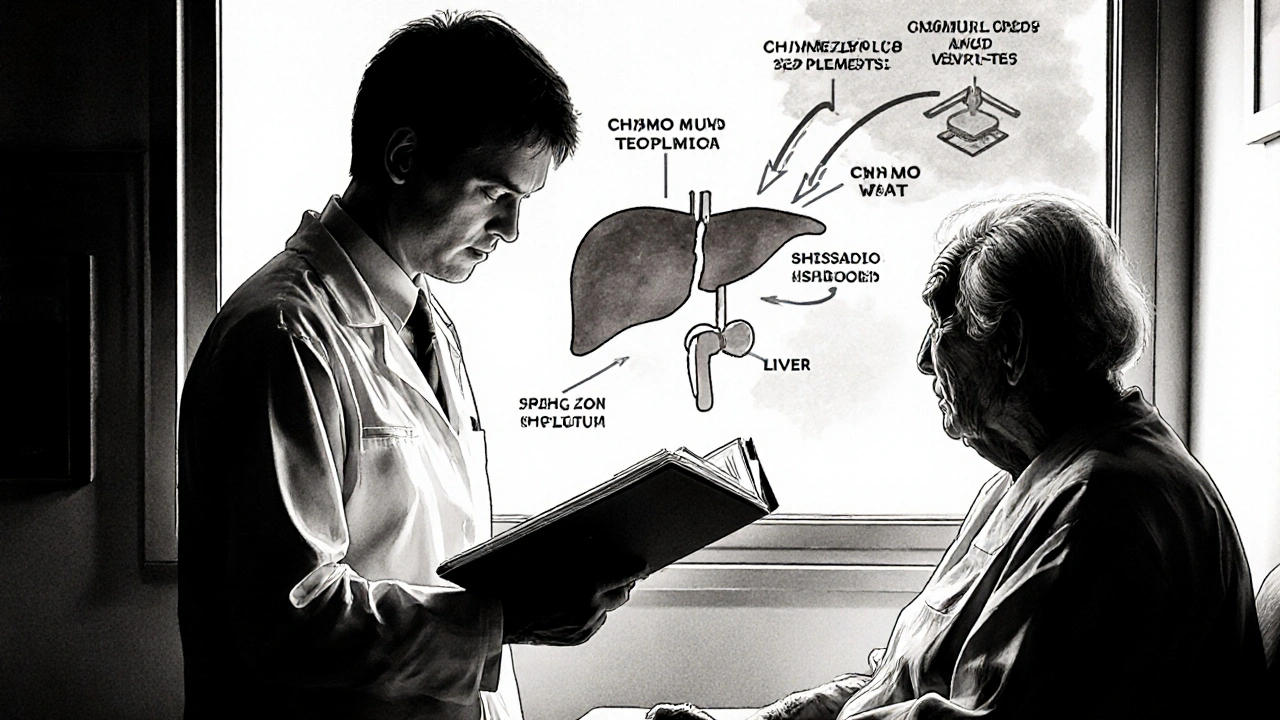
What You Can Do: A Simple Safety Plan
You don’t need to be a scientist to stay safe. Just follow these steps:- Make a complete list: Write down every pill, capsule, liquid, patch, or injection you take - including vitamins, herbs, teas, and OTC meds. Don’t leave anything out.
- Bring it to every appointment: Show your oncologist and pharmacist your list. Do this at every visit, even if you think nothing changed.
- Ask before you take anything new: Even if it’s "just a supplement" or "a little painkiller," ask your care team first. No exceptions.
- Avoid grapefruit and Seville oranges entirely: If you’re on chemo, skip them. No exceptions.
- Stop supplements 10 days before surgery: Bleeding risk doesn’t disappear just because you’re not having chemo that day.
Many cancer centers now have pharmacists dedicated to drug interaction checks. If yours doesn’t, ask for a referral. It’s your right to have this safety net.
What About Newer Treatments Like Immunotherapy?
Immune checkpoint inhibitors - drugs like pembrolizumab and nivolumab - are revolutionizing cancer care. But they come with a new kind of risk: immune-related drug interactions. Unlike traditional chemo, these drugs don’t directly kill cells. They remove the brakes on your immune system. That’s great for fighting cancer - but it can make your immune system attack other things, including other medications. There are documented cases where patients on immunotherapy developed severe liver damage or skin reactions after taking antibiotics, antifungals, or even common pain relievers. The exact mechanism isn’t fully understood, but it’s clear: what’s safe with chemo isn’t always safe with immunotherapy. Doctors are now studying "desensitization" protocols - slowly reintroducing medications that previously caused reactions - to help patients stay on life-saving immunotherapy without risking harm.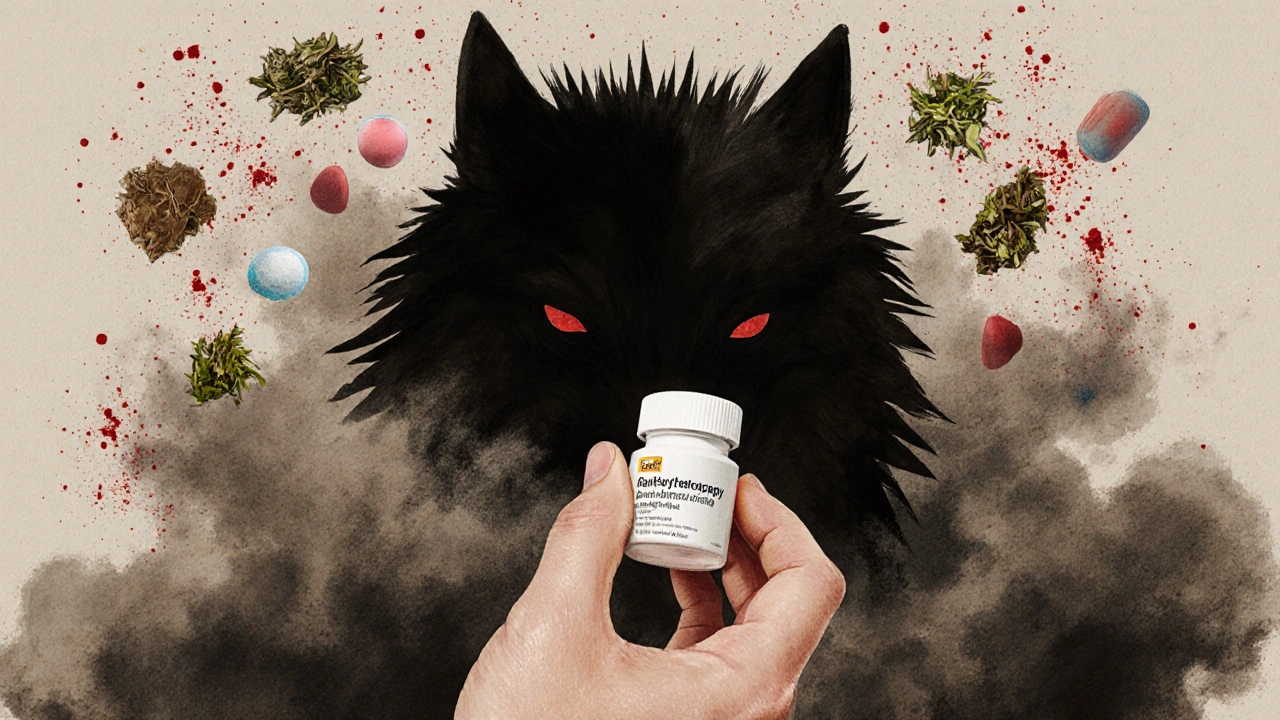
The Bottom Line: Knowledge Is Your Shield
Cancer treatment is complex. But you don’t have to navigate it alone. The biggest risk isn’t the chemo - it’s the things you don’t tell your team. Every interaction matters. Every supplement. Every OTC drug. Every food. And every question you don’t ask. The data is clear: drug interactions cause real harm. Up to 4% of deaths in hospitalized cancer patients are linked to them. That’s not a small number. That’s preventable. Your care team can’t help you if they don’t know what you’re taking. So speak up. Bring your list. Ask the questions. Your life depends on it.Can I take vitamins while on chemotherapy?
Some vitamins can interfere with chemotherapy. High-dose antioxidants like vitamin C, E, and beta-carotene may reduce the effectiveness of certain chemo drugs by protecting cancer cells from oxidative damage. Others, like vitamin D and B12, are generally safe but should still be reviewed by your oncology team. Never start a new vitamin without asking.
Is it safe to use CBD oil during chemo?
CBD can interact with chemotherapy through the CYP3A4 enzyme, potentially increasing drug levels and side effects. It may also worsen low blood pressure or drowsiness from other medications. While some patients use it for nausea or pain, it’s not regulated, and interactions are poorly studied. Always discuss CBD with your oncologist before use.
Why can’t I take ibuprofen with chemo?
Ibuprofen and other NSAIDs can increase the risk of kidney damage when combined with chemo drugs like cisplatin or carboplatin. They can also raise bleeding risk if your platelet count is low. Acetaminophen (Tylenol) is usually a safer choice for pain or fever, but even that needs to be monitored if you’re on liver-toxic drugs.
Do herbal teas interact with chemotherapy?
Yes. Green tea extract can interfere with bortezomib, a drug used for multiple myeloma. Chamomile and licorice root can affect blood clotting and blood pressure. Even seemingly harmless teas like peppermint or ginger may alter how your body processes chemo drugs. Always check with your pharmacist before drinking herbal teas during treatment.
What should I do if I accidentally took something risky?
Don’t panic, but don’t wait. Call your oncology clinic or pharmacist right away. Bring the product with you if possible. They can check if it’s a known interaction and advise whether you need monitoring, a dose change, or a delay in treatment. Early action can prevent serious complications.
Are there apps or tools to check for drug interactions?
Yes, but use them with caution. Apps like Micromedex and Lexicomp are used by hospitals and pharmacies to check interactions, but they’re designed for professionals. Consumer apps may not include cancer-specific interactions or may give false reassurance. Always verify any results with your oncology care team - never rely on an app alone.


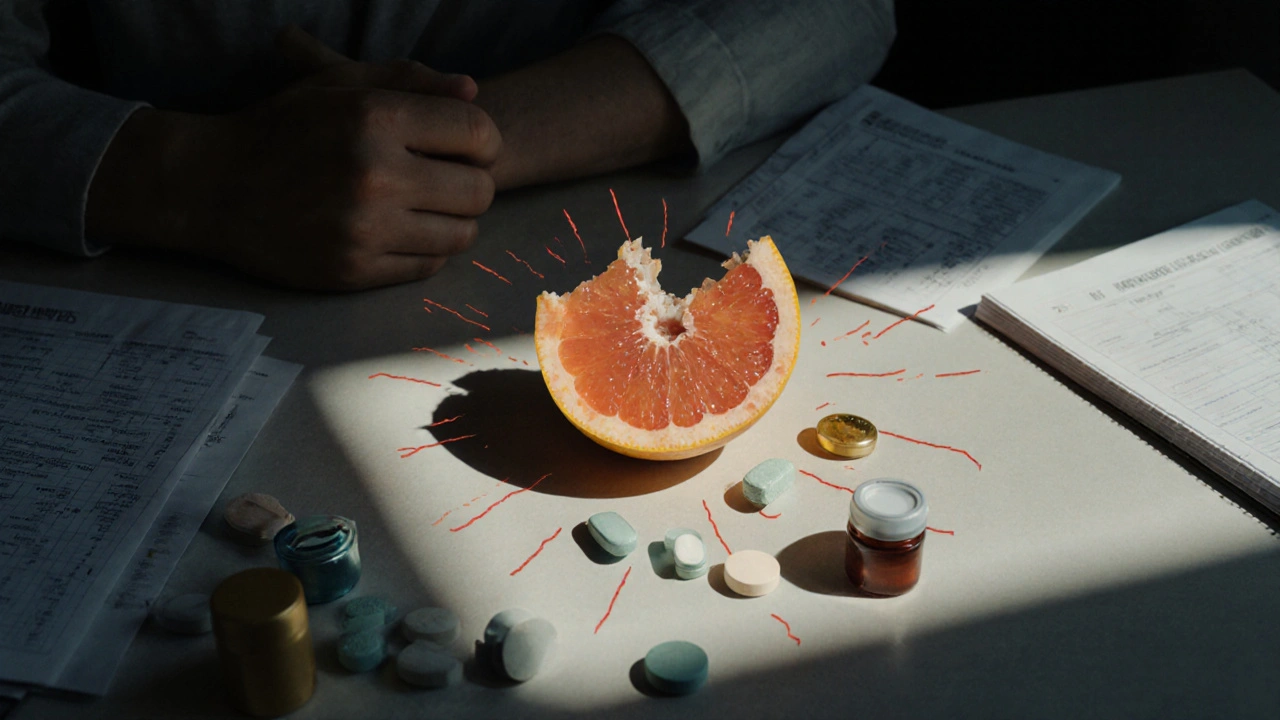

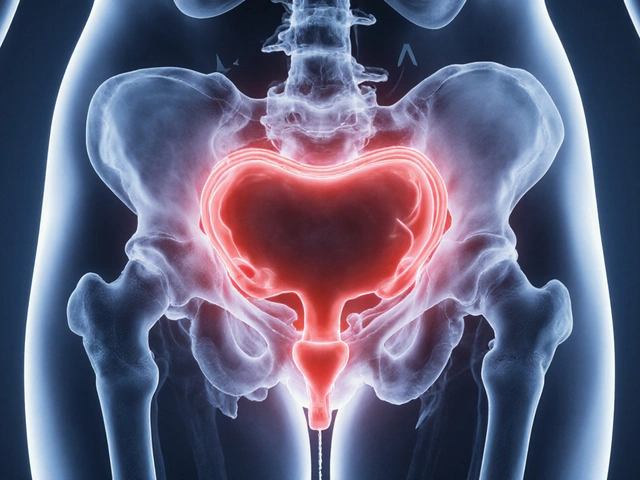
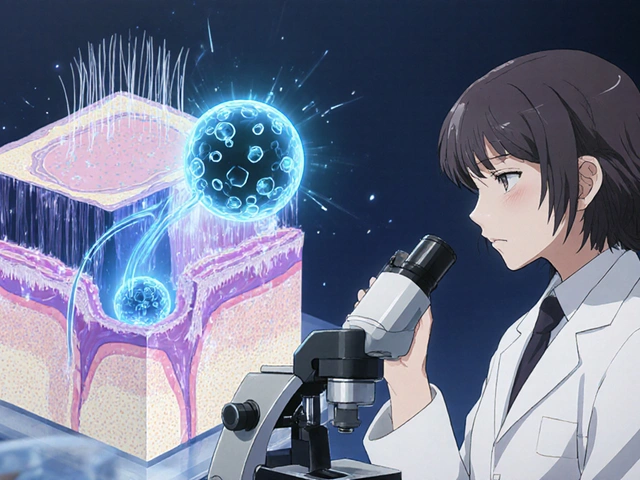

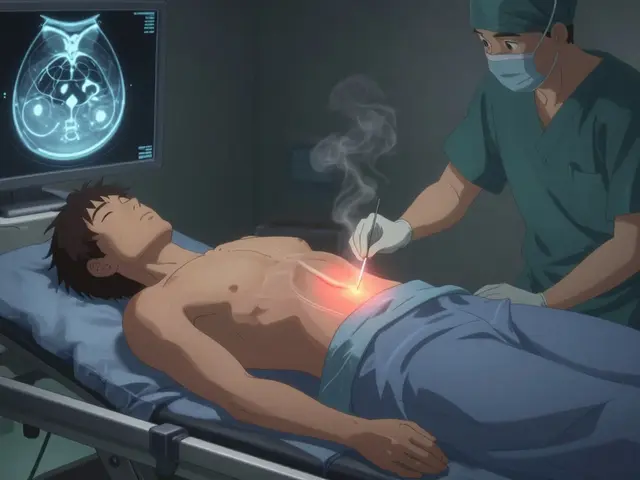
Kane Ren
23 Nov 2025 at 01:34Just wanted to say this post saved my dad’s life. He was taking turmeric pills ‘for inflammation’ and his chemo stopped working. We found out thanks to this. Thank you for laying it all out so clearly.